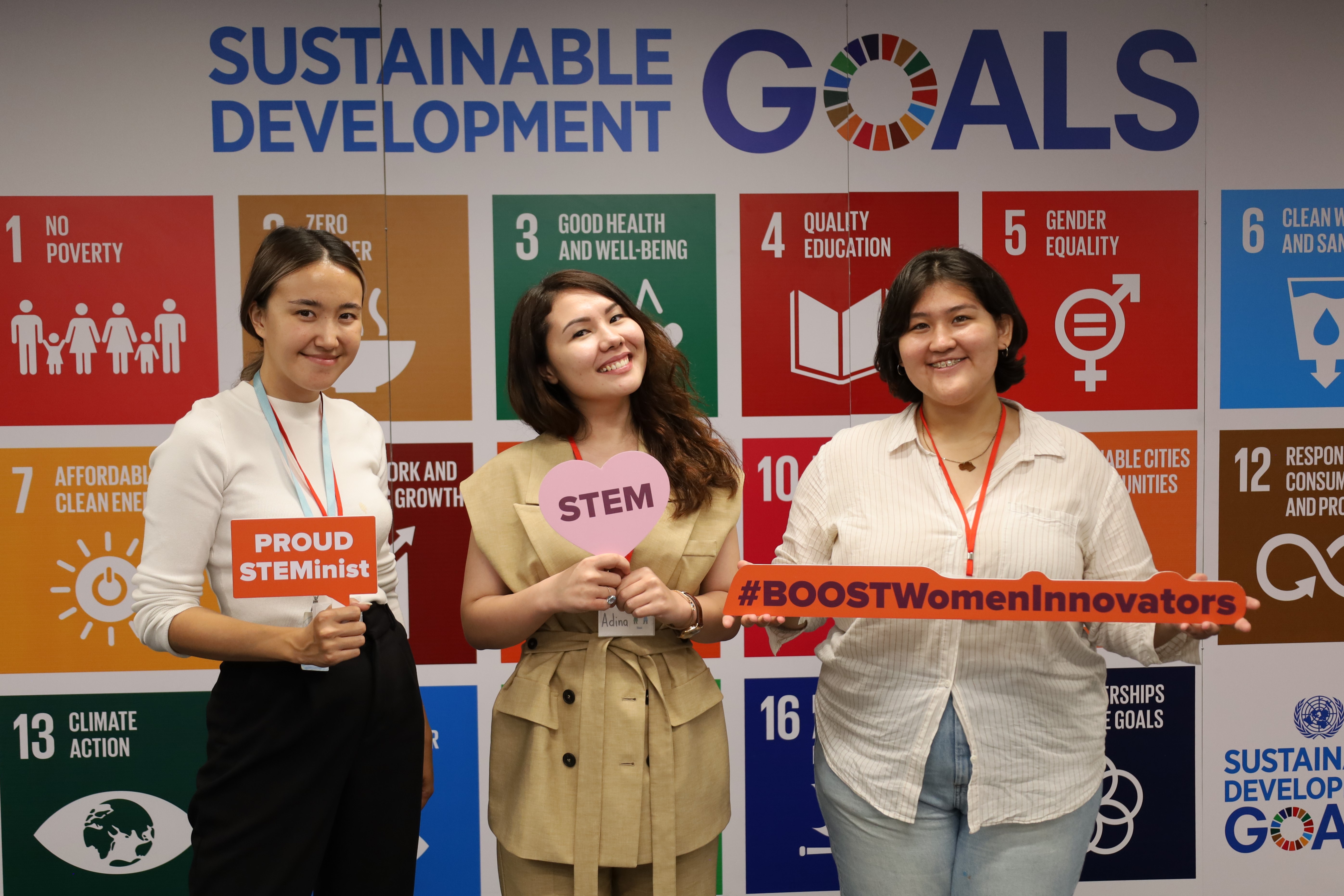Kazakhstan women-led medical digital project wins BOOST grant
Innovating for Gender Equality
November 21, 2022

"The BOOST – Women Innovators Programme has been a great learning opportunity and a remarkable success for our team. We are excited to be among the few awardees selected. We’ll use these funds to test our first 100 full medical digital project. We’ve especially benefited from the Behavioural Insights module, consultation sessions and one-on-one meetings with our mentors,"says Adina Khamitova, Spica Technology founder.
Adina noted that their mHealth solution, called Clarity, provides personalized and preventive medical services for women 18 years and older with fast access using artificial intelligence and machine learning.
Her team was one of 55 innovators from across Europe and Central Asia who participated in the BOOST – Women Innovators Programme to gain access to world-class training and mentoring to develop, redesign and scale their innovations. The programme is a regional initiative aimed at innovating for social impact and is funded and supported by Koç Holding of Turkey and the Ministry of Finance of the Slovak Republic. Three teams represented Kazakhstan – the Girls Power Fund, Connect-Ed and Spica Technology.
BOOST helps women climb over roadblocks to access digital technology
Today, access, ownership and use of digital tools are not gender neutral. Women face more barriers to accessing and using technology than men. They are double victims – of a system that discriminates in access to opportunities so they lack skills, and of family constraints due to existing social norms. The outcome – women are to a great extent excluded from the digital transformation underway.
To respond to these challenges BOOST– Women Innovators is designed to connect women-led organizations that are creating change in their countries - from developing new biomaterials to creating e-learning courses for children to empowering women and girls to succeed and thrive in the digital economy. The programme provided a curated experience for the finalists to help scale their social innovations, which included mentorship sessions with the sector experts and investors, space for finalists to share experience with each other, and access to global knowledge.
"Girls Power Fund's mission is to bring about positive change in Kazakhstan by developing innovative solutions to complex problems, such as access to education and gender inequality. We do this by designing and implementing donor-funded education and training activities focused on STEM and entrepreneurship for high school girls,"says Dinara Auelbekova, founder and mentor of the Girls Power Fund startup.
Through the network of experienced professionals from all around the country, the Girls Power Fund trained around 700 girls and young women from remote cities and villages of the country.
BOOST – a space for women to drive digital innovation
Launched in collaboration with public and private partners, BOOST – Women Innovators brought together champions in four key thematic areas: women in data, women and digital access and use, women in the digital economy and STEM (science, technology engineering and maths), and women driving tech innovation.
One of them is the Connect-Ed startup - a platform that aims to bridge the digital divide in Kazakhstan by crowdsourcing IT equipment to schoolchildren and coupling it with free digital literacy courses.
"Our platform provides an opportunity to collect, purchase and distribute laptops and other devices to schoolchildren in need, especially those with special educational needs and without parental care. So far, we’ve provided more than 220 devices in different cities and rural areas of the country,"notes Gulnaz Kordanova, Connect-Ed team leader.
Shadiyar Makisheva, coordinator at Connect-Ed, added that the BOOST programme has helped to better structure what she has learned in practice.
"We had been working as a team for more than a year and had already established processes and codified basic working principles. But after the BOOST programme experience, everything had a clearer structure. We also learned a lot about social entrepreneurship in our region,"says Shadiyar.
To better prepare for the final BOOST pitch session, UNDP Kazakhstan Accelerator Lab organized the pitch workshop for three teams. The workshop allowed the participants to provide peer feedback, to exchange ideas with invited mentors and experts, and to identify opportunities for further collaboration, new partnerships and resource mobilization for social projects.

 Locations
Locations



